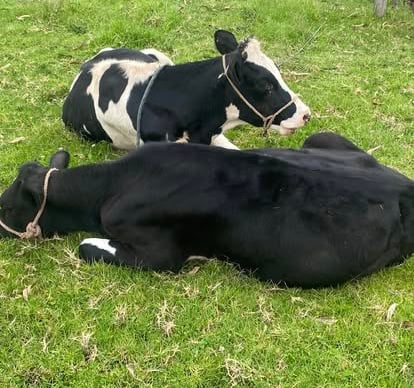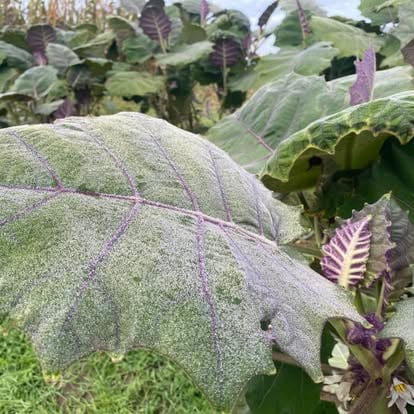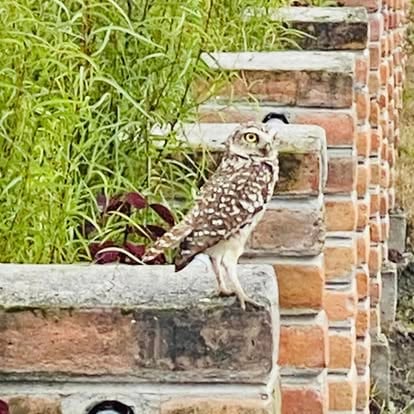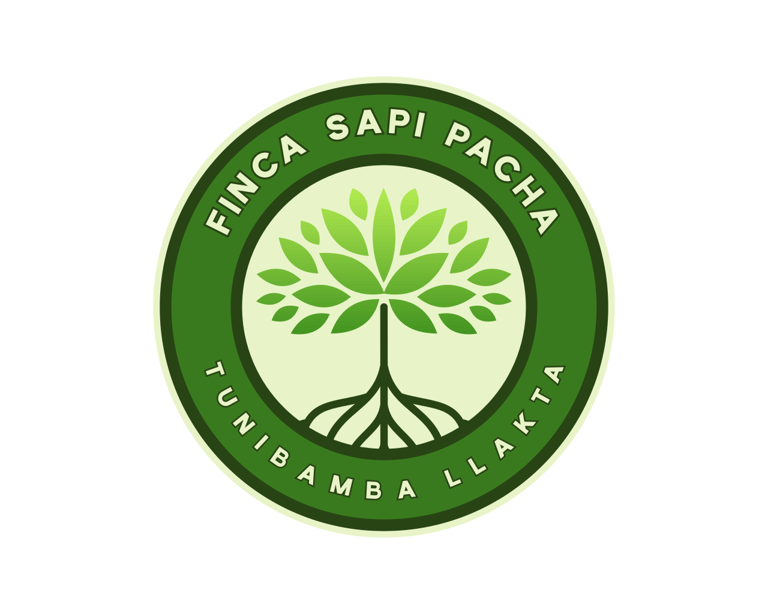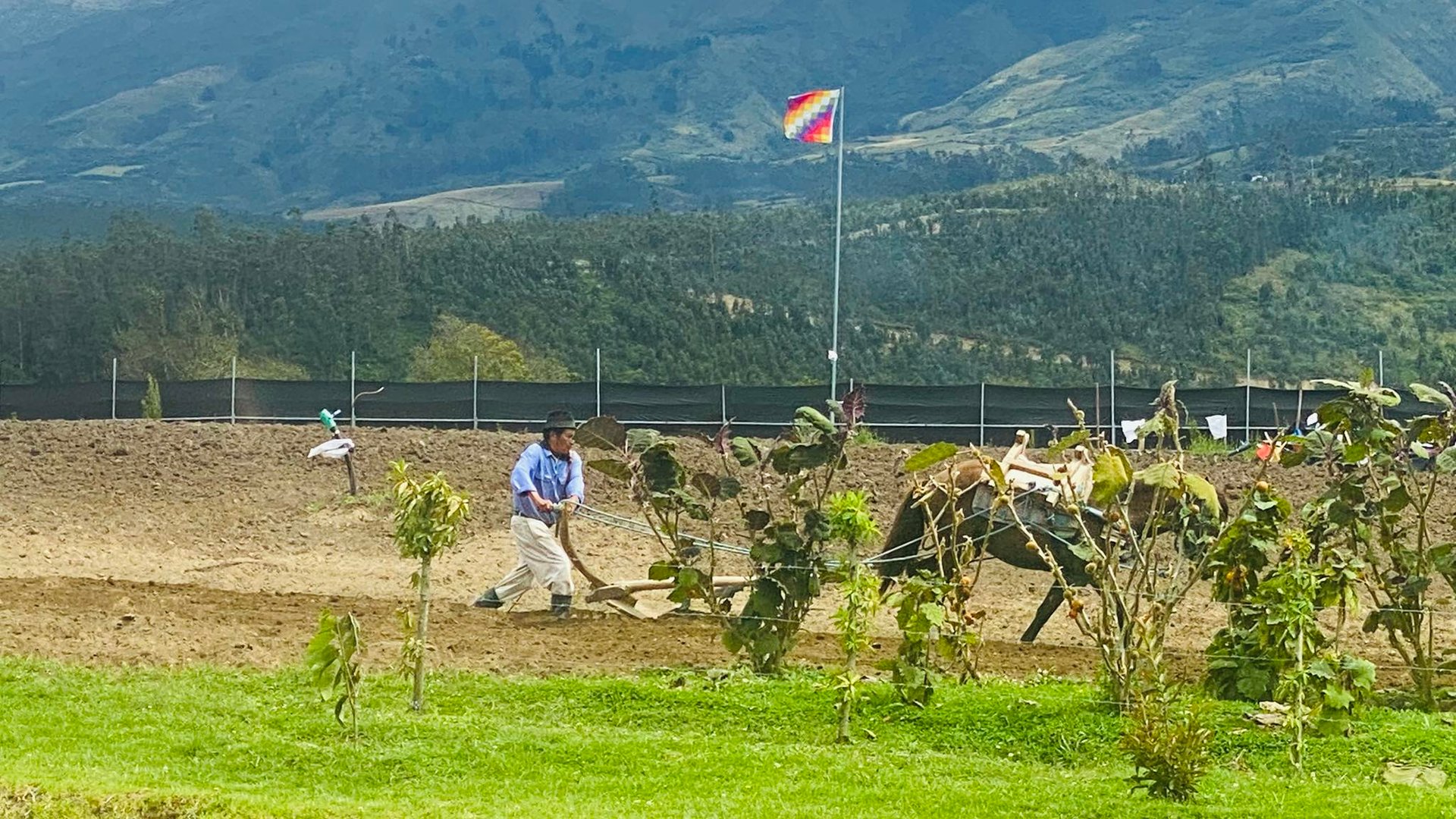
HISTORY
OUR
IN LOVE WITH ECUADOR
We are a couple of retired professionals who moved to Ecuador in early 2022 to explore a different continent and culture. We’re excited to share what we’ve found here, our journey, and show you this beautiful corner of the world.
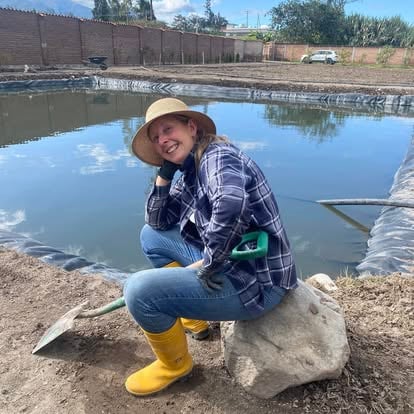

NICKY DEAKIN
“We’ve always loved living in the countryside and when we had the opportunity to retire early from our busy and stressful careers, we decided to make a third continent move in our married life and so we relocated to Ecuador. It was a no brainer for us that we wanted to live in a rural community and after 3 years we are happy we made the right decision.
Most mornings I wake up to the birds singing, the sun rising beside Taita Imbabura and the gentle distant sound of communities starting their day. Roosters sound in the neighbouring farms and my chickens in the coop are letting me know they are laying their eggs. You can hear the low mooing of cows and the squeal of pigs being fed. The surrounding sounds are the typical noises here in the community of Tunibamba.”
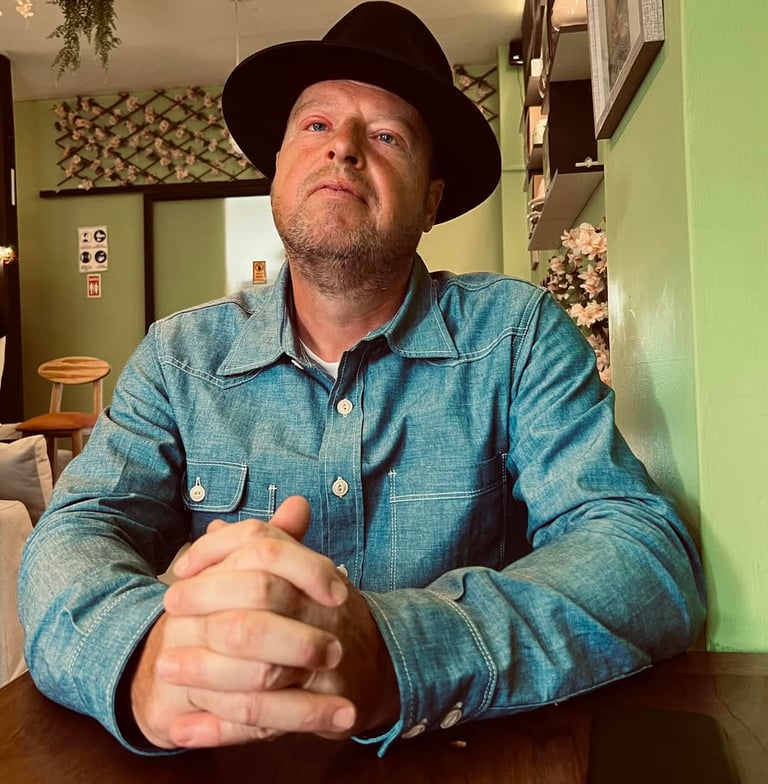

RICH DEAKIN
“After taking early retirement from a long career in business management, project management and change leadership this has been one of the more challenging projects I have ever been involved in. Equal parts rewarding and frustrating, it has been a long and complicated path, a steep learning curve, converting a luxury homestead into a working commercial farm.
Despite these hurdles, life is deep and rich, full of texture and meaning, benefitting from being part of a small indigenous community located in the foothills of Mama Cotacachi. Everyday life and the warmth, curiosity and hospitality of the local people warms the heart and adds to the quality of life here. There is a raw, rustic simplicity and honesty about life that seems to have been removed from the modern western existence. As a mountain hermit, I feel like I have 'come home' to the Andes."
Finca Sapi Pacha (as it was then, an unnamed country home) was purchased in the spring of 2022 with a goal of improving the property and turning into a "something". At that point we did not know what that "something" would be. We initially started working on upgrading the landscaping and some internal upgrades to make the house feel more like "ours". This is essential when moving to a new country. Making your new place feel like it is yours plays an important role in helping you to settle, and offsets other challenges you may have while you adjust to a different life. Comfort and familiarity are important to many people when making significant life changes.
As we started to built out our homestead operation we tested a few things. We started planting our vegetable garden and this provided healthy and abundant fresh food. We got our chickens set up and received wonderfully fresh tasty farm-to-table eggs. We enhanced and extended the chicken coop and had a separate section for meat chickens. By this time we had started raising cows, buying them as calves from the animal market in Quinchuqui near Otavalo and selling them for a small profit.
At this point we realized that the land was an important and valuable asset, one which we needed to leverage. We then spent time analyzing what we could do, reviewing options, and looking at various profit models. We played endlessly with Excel spreadsheets, crunching numbers, discussing logistics and practicalities of various options.
Due to the finca location, copious rich organic black volcanic soil, and local market opportunities we decided to establish a commercial diversified fruit farm. As a small startup operation fruit is typically a longer yielding business model. This can be challenging, and is typically one of the barriers to entry for planting longer term fruits, so we decided to spread the planting schedule over 4-5 years. This would optimize cashflow. In the meantime short cycle crops such as beans and corn would fill the investment-income gap. There were some significant infrastructure works completed that would enhance the property as well as set us up for the long term farm operation, so our initial investment was a little higher than normal.
From a business point of view our planting projects are scalable and can be moved forward or backward in time depending on our needs and how things evolve. Priorities may change or our plans might be adjusted, as we have learned from the last three years in Ecuador not to become too fixated on set goals, times and outcomes.
Our fruit planting projects will continue until 2028.
Our logo was designed using Design.com with the intention of creating a brand that was organic, clearly reflected our business, carried a simple clean feel and included the local community. "Sapi" in Kichwa means root and "pacha" means time/space so we are reflecting the growth of our roots firmly in the community along with our business, as well as ensuring that we help to promote and retain the use of the Kichwa language.
"It's not even the same property any more".
WHAT THEY SAY ABOUT US
